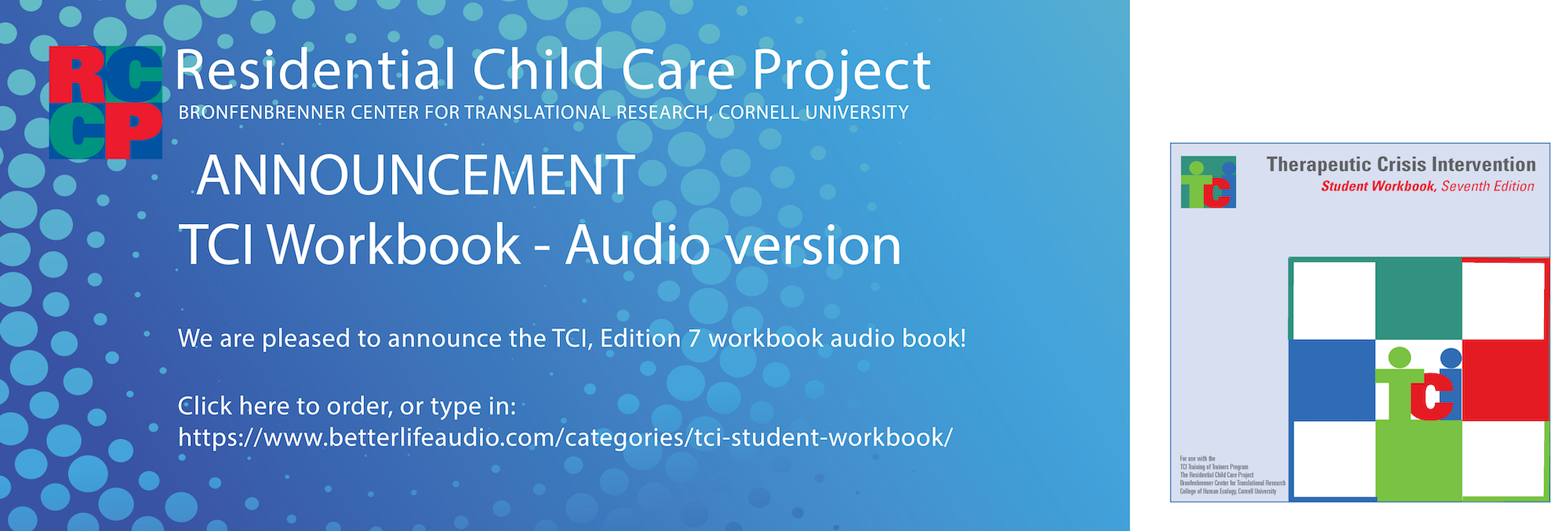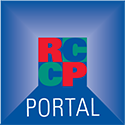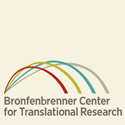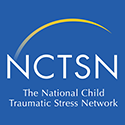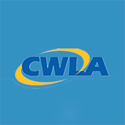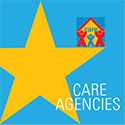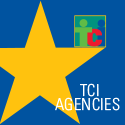
Intruducing the speakers for the Building Caring Communities 2025 in Meanjin (Brisbane), Australia from June 10 to 12, 2025.
Speaker information can also be found on the conference web site. Click here.
The main conference web site can be found here.

Martha J. Holden, Director of the Residential Child Care Project at Cornell University, is the author of the book, CARE: Creating Conditions for Change, a program model for residential child caring organizations and the lead developer of the Therapeutic Crisis Intervention System (TCI). Ms. Holden provides technical assistance to agencies to implement CARE in residential child caring agencies, juvenile justice programs, schools, and child welfare organizations throughout the United States, Canada, the United Kingdom, Ireland, Australia, Spain, and Taiwan. Previously Ms. Holden served as an administrator overseeing the day-to-day operations of a residential treatment agency for adolescents. Ms. Holden has been studying how to improve the quality of care for children in out of home placements through training, technical assistance, writing, influencing organizational culture, and changing systems throughout her career.

Brenda Matthews is a proud Wiradjuri woman living with her husband, Mark, in Bundjalung country, Queensland. Brenda co-directed the feature documentary The Last Daughter, which was released in Australian cinemas and on Netflix in mid-2023 and on ABC in 2024 to excellent reviews and critical acclaim. The film is based on her beautifully penned book of the same title, and was also released in 2023 to excellent reviews. Brenda's journey from being part of the stolen generation to becoming a Mother, Grandmother, Author, Speaker, Film Director, Storyteller and Co-Founder/Director of Learning Circle is an inspiring testament to the power of healing and reconciliation. Her remarkable story, as eloquently portrayed in her debut book and Netflix documentary feature film, "The Last Daughter," encapsulates heartbreak, love, forgiveness, hope and bringing the Country together.

Junlei Li, Ph.D. is the Program Chair of the Human Development and Education and the Saul Zaentz Senior Lecturer in Early Childhood Education at Harvard Graduate School of Education. As a developmental psychologist, his research and practice focus on supporting the helpers – those who serve children and families on the frontlines of education and social services. Studying orphanages, child care, schools, youth programs, he co-develops the “Simple Interactions” approach (www.simpleinteractions.org) to help affirm what ordinary people do extraordinarily well with children in everyday moments. His work is significantly inspired by the pioneering work of Fred Rogers when he served as the Co-Director and Rita M. McGinley Chair for Early Learning and Children’s Media at the Fred Rogers Center.
Keynote: How Do We Know We Are Enough?
What makes any of us “good enough”? Whether we serve children directly, or support families and educators, we invest ourselves in building healthy relationships with human beings. Often, no matter what we do or how much we do, it seems that helping professionals often work in a “never enough” environment. This presentation is intended as a reflection and a reminder that the simple, ordinary things we do with other human beings do in fact matter. They matter in ways that can be seen and felt in moments when we really show up for others, and in ways that can be measured over the long run even if we are not there to see or hear it ourselves.
Workshop: Appreciating the Simple and Ordinary Human Interactions
Simple, everyday interactions are the building blocks of healthy human relationships. This interactive and practice-focused workshop offers opportunities to notice and understand human interactions between children, caregivers, and helping professionals. In this workshop, we will be using the “Simple Interactions” approach to closely examine adult-child and adult-adult interactions in everyday contexts. We will practice appreciative “noticing” and reflective “wondering” to understand the dynamics within even the simplest human interactions. We will discuss how these interactions weave together four basic building blocks of the human relationship – connection, reciprocity, inclusion, and opportunity to grow. We will also extend these principles to reflect on the “parallel processes” of adult-adult interactions that support professionals and families. The Simple Interactions Tool (Creative Commons license) is a free, adaptable, non-commercial, publicly accessible resource at www.simpleinteractions.org.

Dr Emma Goodall was the inaugural Director of South Australia’s Office for Autism which sits within the Department for Premier and Cabinet, delivering a state autism charter and practical outcomes for autistic individuals in South Australia. Now the Director, Strategic Translational Research, Emma is applying research to policy to ensure effective changes are made. Emma has worked extensively in the areas of autism, education, research and public policy and teacher training across Australia, New Zealand, the UK and mainland Europe. Emma is an autistic researcher, pubic speaker, author, educator and parent of an autistic adult. She has a passion for using translation research to support policy and practice across the lifespan and a particular passion for the use of interoception strategies to support emotional wellbeing. Previously Emma was a National Manager in a Federal autism and education project, Manager Disability and Complex Needs for the SA Department for Education, as well as sitting on a number of executive committees and leading a national research project.
Neurodivergent children and young people are disproportionately represented in Kinship, Permanent and Foster Care placements and out of home care. These individuals may or may not be diagnosed and support for carers can be inadequate. This is partly due to the highly individualised way neurodivergence, particularly autism and/or ADHD can present, and partly due to the complexity of diagnostic overshadowing in children and young people who have experienced or are experiencing trauma. This session will provide a brief overview of what autism and ADHD are and some of the common ways in which they might present, followed by practical strategies for supporting children and young people in your care. The intersection of self-regulation and neurodivergence will be explored through sharing practical activities that can support the development of self-regulation skills in the long term and act as short term biological/neurological calming activities.

Jorge Fernández del Valle is Full Professor of Psychosocial Intervention at the University of Oviedo (Spain) and he is the Director of the Child and Family Research Group (Grupo de Investigación en Familia e Infancia-GIFI). His research focuses on programme evaluation in residential and foster care and needs assessments of particular groups, such as unaccompanied migrant young people or children in residential care suffering from mental health problems. As a result of this research activity, he has designed and implemented a Recording and Assessment System for Residential Child Care (SERAR) that is implemented in nine Autonomous Communities in Spain. He has also coordinated the publication of the National Standards of Quality for Child Residential Care, ordered by the Spanish Ministry of Health and Social Services in 2013. Prof. del Valle is author/co-author/editor of 15 books and nearly 100 peer review papers and book chapters in the field of child welfare.

Lisa joined the University of Sussex in 2022 as Professor in Applied Social Science. Lisa started her academic career in 2000, as a research assistant, based in the Centre for Child and Family Research at Loughborough University. Between 2013 and 2017 she was the Director of the research centre and led a large portfolio of research and evaluation projects focused on children’s social care. Lisa then led the Rees Centre at the University of Oxford between 2017 and 2022.
Lisa has published a range of books, journal articles and project evaluation reports. Along with her colleagues, Professor James Whittaker and Professor Jorge F del Valle, Lisa is co-chair of the International Work Group for Therapeutic Residential Care. In late 2017, along with colleagues at UCL and the University of Oxford, Lisa established the Children’s Social Care Data User Group (https://cscdug.co.uk/). The group provides a forum to share expertise and learning between all users and potential users (academic, practice and policy) of children’s social care data.
Please see previous post below with more conference links and details. We look forward to seeing you there!
- posted 28 March 2025
Dear colleagues,
The Residential Child Care Project is excited to co-host with Life Without Barriers, Uniting Care, and Allambi Care the Building Caring Communities Conference 2025 in Meanjin (Brisbane), Australia from June 10 to 12, 2025.
This event will bring together a diverse group of practitioners, people with lived experience, researchers, policymakers, and advocates who are all committed to promoting evidence-informed practices and improving client outcomes in the child and family sector.
https://www.buildingcaringcommunities2025.org/
Registrations to attend are open now. Register by 31 December 2024 to secure early bird rates.
https://www.buildingcaringcommunities2025.org/registration/
Abstract submissions are open now until January 19, 2025.
https://www.buildingcaringcommunities2025.org/abstracts/
Connecting with CARE agencies
We are excited about providing opportunities for networking with CARE agencies in Australia during the conference. If you are interested in visiting a CARE agency before or after the conference, we will assist in connecting you to an agency representative. Please contact Martha Holden at mjh19@cornell.edu
Please join us at the Building Caring Communities International Conference 2025!
TCI Trainer Recertification Option
Current TCI7, TCIS2 or TCIF4 Trainers can use attendance at the Building Caring Communities 2025 conference as their recertification Update. See detailed information at:
https://www.buildingcaringcommunities2025.org/tci-trainers/
Frequently Asked Questions are provided on both the main conference page and the TCI Trainer page. If you cannot find the answer to your question, please reach out to:
Holly Smith at hs226@cornell.edu for TCI/F/S recertification questions.
Abercrombie Events at bccc@abercrombiemanagement.com.au for conference related questions.
We hope you will join us at the Building Caring Communities International Conference 2025!
Sincerely,
The RCCP team!
- Posted December 2024
Congratulations to Hillside Family of Agencies - Crestwood Campus!!
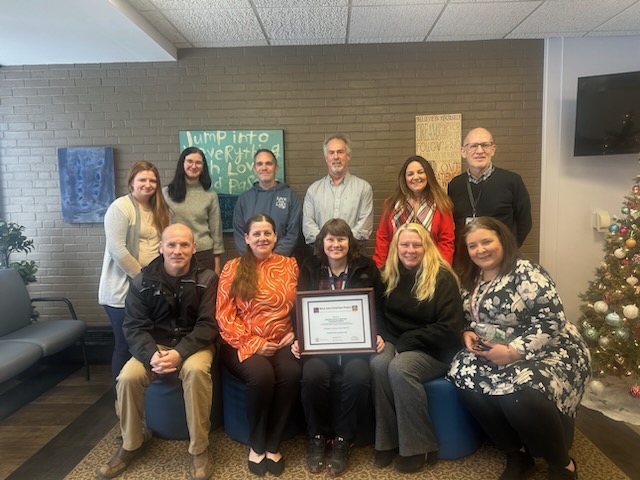
Congratulations to Hillside Children’s Center’s, Crestwood Campus staff, children and families, and Board of Directors for achieving CARE Agency Certification status. Crestwood has fully invested in CARE, has implemented the CARE model throughout the campus, and is committed to improving the lives of children and families that it serves. The last few years Crestwood has faced several challenges including significant staff turnover, changes in leadership, and a global pandemic. During this time, leadership and staff not only worked to maintain CARE implementation progress but substantially increased their efforts over the last year to fully embed CARE throughout the organization. Led by a strong leadership team, Crestwood has made important practice decisions resulting in congruency throughout the agency in CARE practices and a commitment to serving the best interests of children
Please click here to view the complete list of certified CARE agencies.
-Updated December 21, 2023
-Posted November 8, 2023
Congratulations to Hillside Family of Agencies - Fingerlakes Campus!!
Congratulations to Hillside Children’s Center’s Finger Lakes staff, the children and families, and Hillside for achieving CARE recertification. Finger Lakes has fully invested in CARE as demonstrated by the strength of its leadership and its strong infrastructure that supports the CARE principles. There is deep commitment to adhere to the CARE principles at the program and practice level as it is seen to provide the type of experiences and care that the young people and families need. The staff’s dedication to serving the children’s best interest by working together and applying the CARE principles is clear. Finger Lakes has exemplified data-informed decision making, purposeful programming, and developing its staff through reflective practice and supervision.”Please click here to view the complete list of certified CARE agencies.
-Posted November 8, 2023
Congratulations to Life Without Barriers Northern Territory!!
Congratulations to the Life Without Barriers Northern Territory staff, the children and families, and Board of Directors for achieving CARE Agency Certification status for their NT LWB program. The Northern Territory team with National support have demonstrated determination and unwavering commitment to fully implement TCI and CARE. The NT LWB team has made great efforts to embed CARE and TCI across their residential programs and diverse staff to the benefit of the children and families they serve. There is a deep commitment to adhere to the CARE principles at the program and practice level. The dedication of the NT LWB team to serve the children’s best interest by working together and applying the CARE principles is clear.
-Posted October 30, 2023
TCI Community of Practice - Europe!!
Our partners in Europe will be hosting a TCI Community of Practice event in November.
Date:
14th November 2023 at 2pm.
Topic: TCI Sustainability and Sustainment - Lisa McCabe PhD, Research Associate, Cornell University
An opportunity to share, reflect and discuss the challenges in implementing and sustaining the TCI system.
To register your interest, please email ams354@cornell.edu
The CoP flyer can be found at https://rccp.cornell.edu/downloads/TCIE%20COP%20Flyer%20Nov%202023.pdf
- Posted on October 19, 2023
Congratulations to Life Without Barriers - Western Australia,on achieving their CARE Agency certification!!
LWB Western Australia has maintained a long-term commitment to improving the lives of children and families that it serves.
The Western Australia team with National support have consistently worked for several years to fully implement TCI and CARE all toward serving the best interests of children and families. The Western Australian team has continued to embed these practices into their programs throughout many changes and various challenges including a pandemic over the past 2-3 years.
“We have always been, and continue to be, a community of people unshaken by the toughest of circumstances and invigorated by working together to break down barriers.”
Claire Robbs, Chief Executive
Please click here to view the complete list of certified CARE agencies.
- Posted on October 11, 2023
Congratulations to McMan Youth, Family, and Community Services on achieving their CARE Agency certification!!
Congratulations to the latest CARE Certified agency, McMan Youth, Family and Community Services. The McMan leadership team has diligently worked to fully implement CARE and serve the best interests of children and families. Throughout numerous challenges including significant staff turnover, changes in leadership and a global pandemic, staff throughout the organization not only worked to maintain CARE implementation progress but even increased their efforts. In addition, McMan has regularly participated in and contributed to the International CARE CoP since its inception. Like their founders, “Not only do they (leadership and staff) believe that things should be different, they believe that things can be different. And so, they make them different. “
Please click here to view the complete list of certified CARE agencies.
- Posted on September 20, 2023
Congratulations to the following organizations on achieving, or maintaining, their CARE Agency certifications!!
CARE Agency certification renewals
American Children’s Home invested very early in the CARE model as part of our research project supported by The Duke Foundation grant. Their early adoption of the CARE model made a significant contribution to building the evidence for CARE. Through their leadership and strong support for CARE, American Children’s Home held the CARE model through the last few difficult years. American Children’s Home has maintained a long-term commitment to improving the lives of children and families that it serves.
The Community Health Resources group home team continues to work in the best interests of the young people, advocating for what will help them succeed in adulthood, and maintain important connections with their family and community. Their dedicated, long-serving professional team has worked tirelessly over these last very stressful years to maintain a high quality of care and treatment. They have held the CARE model through this period by quickly addressing practices that do not align with the CARE evidence-based principles, providing support and supervision, and openly seeking feedback and assistance from the Cornell team. They consistently strive to put in place improvements in the best interests of children and young people.
Oak Hill Ranch is an integral partner in the on-going development of the CARE model as well as how agencies maintain fidelity and sustain CARE. The organization hosts professionals from all over the world assisting them as they consider implementing an evidence-based program model. As part of the CARE Academy, they provide support and encouragement to new agencies as they start their CARE journey and actively support a Canadian Community of Practice. OHR has become a model of excellence within the province of Alberta as well as the country of Canada. Other organizations have followed their lead and committed to implementing the CARE model to better serve the needs of their children and families. Not only have the children and families at OHR benefitted from their efforts, but the lives of children and families all over the province and the world have improved because of the generosity and commitment of OHR.
NEW CARE Agency certification
Ranch Ehrlo has fully invested in CARE, has implemented the CARE model throughout the agency, and is committed to improving the lives of children and families that it serves. Ranch Ehrlo, led by a strong leadership team, has made important practice decisions throughout its CARE journey resulting in congruency throughout the agency in CARE practices and a commitment to serving the best interests of children. Through active participation in regional and international communities of practice, their team has shared their valuable experiences and learning with CARE agencies around the world. By modeling the CARE principles and reflective practice, their leadership team helped to hold the staff and children through a pandemic and unprecedented rates of staff shortages.
St. Vincent’s Villa and Villa Maria School with Catholic Charities of Baltimore have fully invested in CARE, have implemented the CARE model, and are committed to improving the lives of children and families. Led by a strong leadership team, the organization has made important structural decisions throughout its CARE journey resulting in congruency in CARE practices throughout their programs and a commitment to serving the best interests of children. Through active participation in the international community of practice, the team has shared their valuable experiences and learning with CARE agencies around the world. By modeling the CARE principles and reflective practice, the leadership team helped to hold the staff and children through a pandemic and unprecedented rates of staff shortages.
Please click here to view the complete list of certified CARE agencies.
- Posted on August 29, 2023

RCCP recently hosted an international retreat!!
"Based on the conversations I have had since our time together, people left the retreat excited about their conversations and eager to continue our work together. I left the retreat feeling confident about the future of the RCCP and excited about all of the possibilities for our continued contribution to improving the quality of care for children and families." - Martha Holden, RCCP Director
RCCP hosted a three-day international retreat with our staff, consultants, and international partners from around the world. 60+ people were in attendance from the United States, Canada, United Kingdom, Ireland, Spain, and Australia. We came together to talk about:
- The history and mission of the RCCP - the common goals and passion of this group, and the many decades of experience and dedication to our work, left a deep, lasting impression on everyone in attendance.
- The RCCP as an organization - what makes RCCP a strong organization, and how do we sustain those values and qualities?
- The status of RCCP's many projects: CARE and TCI, as well as research grants that we are currently engaged in.
- Presentations
- Developmental relationships
- Panel: Implementing Developmental Relationships
- Small group discussions - how do we apply concepts presented to our work?
- Workshops/Discussion Groups
- Developmental Interactions
- TCI/CARE Foster/Kinship Care and Staff Support Training
- Applying Developmental Relationships
- Addressing Complex Needs
- Catching up with Neuroscience
- Mindfulness Practice / Training to Support Adult Staff
- How to Include Those with Lived Experience in Our Work
- Presentation: CARE and TCI: A Journey to Sustainment
- Panel Presentation: Implementing and Sustaining Programs –from an agency, school, & system perspective
- Workshops/Discussion Groups
- Data-informed Decision Making in Implementation: Benefits, Cautions, and Experiences
- Sustaining Programs: What do we know about sustaining programs and how we can assist organizations?
- CARE Certified Agencies and the CARE Academy: What role do these agencies play in on-going development and sustainment of the CARE Model?
- Implementing TCI: What have we learned and where do we go?
- Selecting and Developing CARE Implementers: What are the needs and what process shall we put in place to increase our capacity for implementation work?
- TCIS and Trauma-Sensitive Schools: Key aspects of trauma-informed schools and implementing TCIS in schools
- Behavior Reinforcement and Our Work: An exploration of how CARE and TCI concepts, such as power struggles, setting events, and trauma histories relate to behavioral interventions and theories.
- Reflections on our time together
In between all of the intense discussion about out work, there was fun to be had as well. Good food. Fun games. Time with families. Much time spent talking about how excited people are about our work, and what the future holds for RCCP. It was a great event!
- Posted on August 2, 2023
CARE Edition 3 is now available:
The third edition of the CARE book is now available at Child Welfare League of America (CWLA).
Click here to order your copy today!
The CARE: Creating Conditions for Change program model is built on six principles that form the foundation for creating conditions for change. This model offers a framework for practice that enables caring adults and staff at all levels of the organization to provide such an experience. The core principles of being developmentally focused, family-involved, relationship-based, competence centered, trauma-informed, and ecologically oriented lay the groundwork for everyone to work cohesively in the best interests of the children in their care. AUTHOR: Martha Holden
- Posted on April 19, 2023
September, 2021: In memoriam
RCCP bids farewell to our dear colleague and friend, Tom Endres
It is with a deep, profound sadness that we mourn the loss of our dear friend and colleague, Tom Endres. Tom passed away on September 14, 2021 while vacationing at Pike’s Peak in CO.
Tom dedicated his life to the field of residential child care for more than 40 years. His unwavering commitment to enriching the lives of children in care was extraordinary. Tom always knew that this was his true purpose in life. His Master’s degree from an Educateur program at Ohio State University was specifically designed for work in residential care. Tom was a foster and adoptive parent, and he worked for organizations in Ohio, Kentucky, and Florida before joining us at the Residential Child Care Project in 2001, where his impact on the field of residential care evolved to a more global scale.
Through his work with the RCCP, Tom helped improve the lives of many children and residential and school staff across the United States, Canada, Bermuda, Australia, and Europe. He embodied the principles that govern our work every day. His commitment to helping young people and his love of life was inspirational.
“Our hearts are breaking over the loss of our dear friend and colleague. We will miss his gentle kindness, unwavering commitment, and enduring drive to stay the course. We are all better for having worked (and played) with him. We love you Tom. You will always live in our hearts and minds.
- The RCCP Team”
Obituary and services information can be found at: https://www.egan-ryan.com/obituary/Thomas-Endres

Perspectives of International Social Work
University of Zurich, Switzerland | October 10-12, 2018
Hosted by: The ZHAW School of Social Work in collaboration with FICE, Switzerland
Residential Child Care Project director, Martha Holden, and Cornell consultant, Jack Holden, joined nine students in the seminar "Perspectives of International Social Work" on October 10-12, 2018 in Switzerland at the ZHAW School of Social Work. The goal of the seminar was to inform students about the CARE model, and to analyze its success as a research and practice informed program model. Full articles can be viewed at:
Ithaca, NY | September, 18-20, 2018
Hosted by: The Residential Child Care Project
The Residential Child Care Project (RCCP) hosted an event to provide leaders from residential child care agencies a forum to share experiences and improve practices at their agencies. A total of 36 leaders from 22 residential care agencies in three countries attended the conference, which took place from September 18 to 20 on Cornell’s campus. Each of the agencies who participated in the conference is in the process of implementing or using the Children and Residential Experiences: Creating Conditions for Change, or CARE, model – an evidence-based program developed by the RCCP to improve the social dynamics in residential care settings. Click here for the link to the full article.
Dublin, Ireland | November 6-7, 2017 & Doncaster, UK | November 9-10, 2017
Hosted by: The Residential Child Care Project
The recent regional TCI events in the UK and Ireland were a great success, and we would like to share some material from those events. The pdf documents below are provided by Martha Holden. We hope that you find them informative and useful.
Brief CARE Model and Implementation ACWA-UK-IE.pdf
Two North Carolina school districts are implementing a crisis prevention and intervention system created at the BCTR that teaches school staff how to use trauma-informed practices to anticipate and de-escalate disruptive behavior, manage aggression and help students learn social and emotional skills.
Please visit the BCTR website for the full article by clicking here.
This report from summarizes the presentation that was delivered on April 29, 2016 at the ALIGN conference in Edmonton, Alberta. The first section describes the CARE model of practice (Children and Residential Experiences), and the model of implementation. The second section summarizes the results of a multisite study of CARE implementation in the USA.
The Residential Child Care Project (RCCP) held its fourth international conference on June 21 to 24, 2016 in Lake George, NY. The event titled, Building a Community of Practice, delivered as promised, uniting approximately 250 child caring professionals from 13 countries and laying the groundwork for an online community of practice dialogue. Included is an article detailing highlights from the event, perceptions from conference attendees, downloads, and links to blogs that stem from conference discussions. Click here to get the article.
Reflections from the, Building a Community of Practice International Conference: Write On Community of Practice, by Jack C. Holden, Michael Nunno, Dale Curry, Laura Steckley and Raymond Taylor.
Click here to download the article.The California Evidence-Based Clearinghouse for Child Welfare (CEBC) listed CARE ias a Promising Research Evidence-based model. We want to extend our heartfe lt thanks to our colleagues around the world for their hard work and dedication, and to our CARE agencies for their amazing contributions to this process. Click here to learn more.
QuickTRIPS | Translating Research Into Practice
QuickTRIPs are summaries of research related to the Residential Child Care Project (RCCP) located at Cornell University in the Bronfenbrenner Center for Translational Research. Research topics are inspired by and for practitioners at the RCCP. If you have comments, suggestions, or an idea for a research topic related to the work of RCCP, contact Eugene Saville, as20@cornell.edu.. We’d love to hear from you! Below is a listing of QuickTRIPS published since 2017.
OVERCOMING CHALLENGES WITH THE LIFE SPACE INTERVIEW (Published March, 2019)
Implementation of the Therapeutic Crisis Intervention (TCI) System includes use of the Life Space Interview (LSI) after a young person experiences a crisis. In the LSI, staff follow a series of seven steps to help young people process and learn from the experience. This QuickTRIP shares: 1) TCI trainer reported challenges and successes when implementing the LSI in residential or school settings; and 2) solutions for addressing these challenges.
THE LIFE SPACE INTERVIEW (Published April 2018)
The Life Space Interview is a verbal strategy for providing active intervention in young people’s lives. Referred to as “the clinical exploitation of life events”, staff can use the LSI to help children move from impulse to self-regulation to self-mastery. Trainers play a key role in helping staff understand the importance of implementing high quality LSIs.
REFOCUS Newsletters Archive

